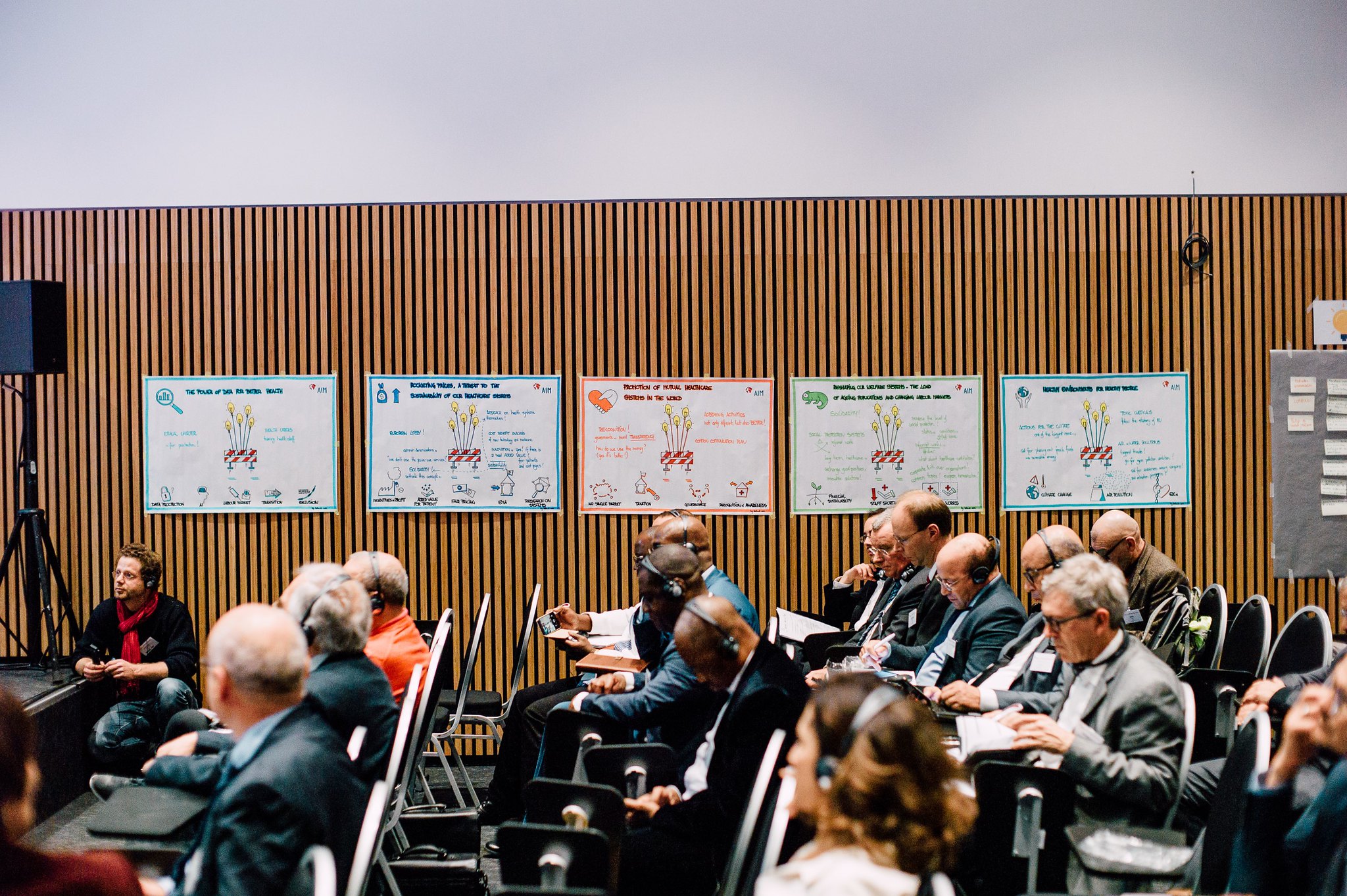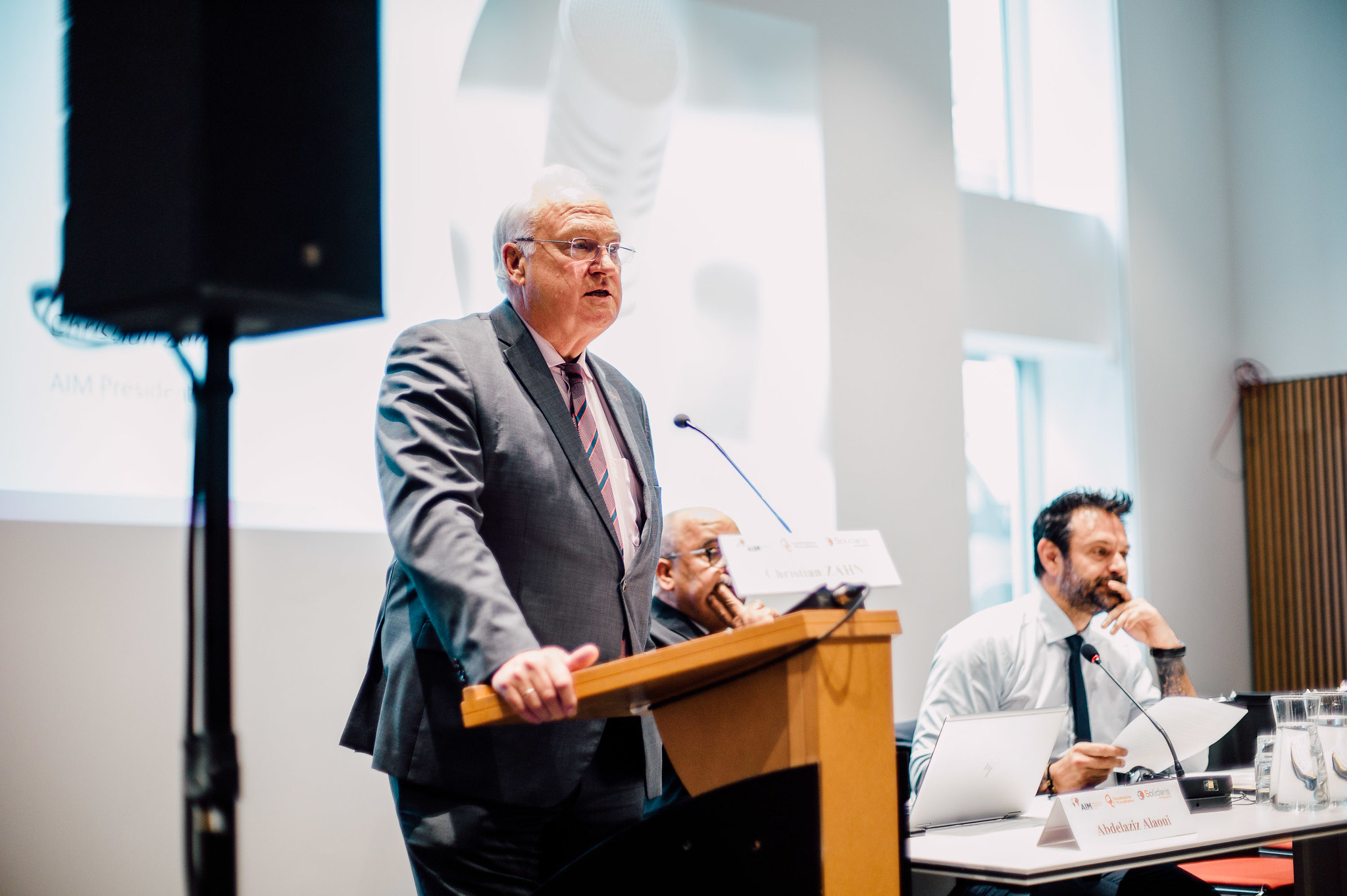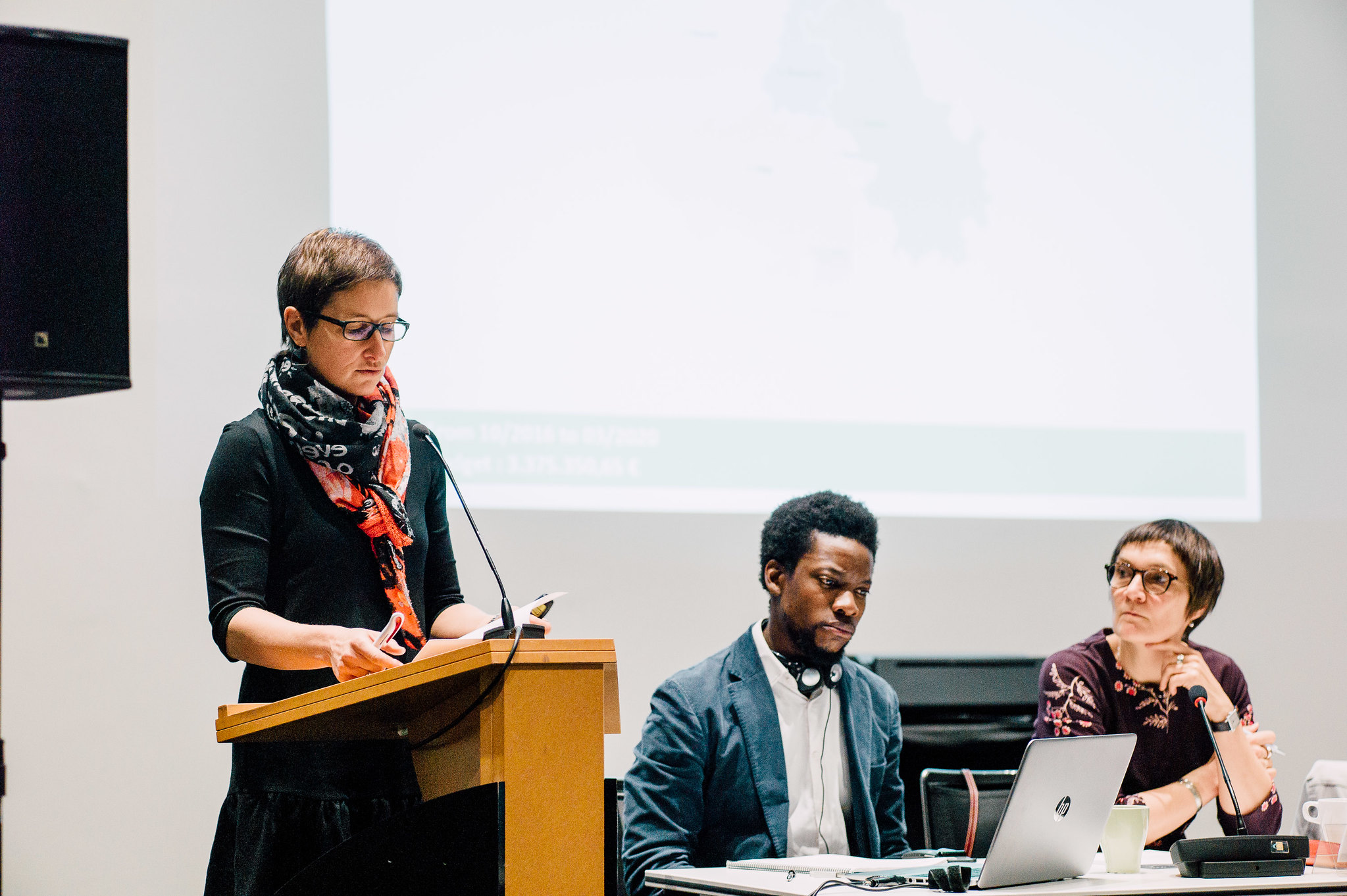The members of the AIM met in Brussels from 13 to 15 November 2019 for the Board of Directors meetings. Topics such as medical deserts, technological advances, further development of the Lomé platform and the social and health policy of the next European Commission were addressed during the meetings of the Board of Directors.
The members of the AIM met in Brussels from 13 to 15 November 2019, in the office of Solidaris Socialist Mutual Benefit Association, for the Board of Directors meetings. Topics such as medical deserts, technological advances, further development of the Lomé platform and the social and health policy of the next European Commission were addressed during the meetings of the Board of Directors.
Creating the AIM programme of work together with a world café!
As part of the meetings of the Board of Directors, members of the AIM experimented with a new discussion format: the “worldcafé”. During sessions in small groups, with each one dedicated to one topic, members of the AIM addressed the topics that will be used as a basis for the future development of the programme of work of the AIM for 2020 to 2023. The five big priorities discussed were:
- The power of data for improved health
- The rise in prices: a risk to the sustainability of our health systems
- Promotion of mutualist health systems and social services
- Rethinking our social protection systems – the burden of ageing populations and labour markets in transition
- A clean and healthy environment for healthy people

Health mutual benefit societies, the digital revolution and access to healthcare for all
The AIM organised a study trip in partnership with the Belgian Intermutualist Collegial Body (CIN). This meeting enabled participants to better understand the electronic exchange of data between Belgian mutual benefit societies and service providers as well as the coordination of home-based care for older people.
This study trip showed the extent to which IT and digital health tools can contribute to effective interdisciplinarity in relation to users and improved continuity in care (communication, data sharing, etc.). They can also contribute to increasing the empowerment of patients and improving autonomy, in particular thanks to feedback-led and safer help at home.
A seminar on medical deserts improved participants’ understanding of the development of these deserts in the regions and countries represented as well as the solutions implemented by health mutual benefit societies in these regions. Indeed, medical deserts are becoming an increasingly significant issue throughout Europe, but also in Latin America, Africa and the Middle East. The round table permitted members to share their experiences on this topic. Everiste Somda, from MAADO (the Mutual Benefit Society for Customs Administration Agents) explained that residents have to travel an average of 6.4 km to access first-level care in Burkina Faso. With one doctor for 20,000 residents and some specialisations such as radiotherapy missing at national level, Burkinabe mutual benefit societies contribute to addressing the problem of a lack of access, specifically by creating mutual healthcare centres and by offering grants to medical students.

Europe at a crossroads
The European Affairs committee of the AIM met to address the following topic: “The Von der Leyen Commission 2019-2024: at which point will this commission take social care and health to heart? ”
Michel Jadot, President of Solidaris/the National Union of Socialist Mutual Benefit Societies, presented his vision of a more social Europe, supported by social justice. He called for a new social and environmental pact, bringing together all stakeholders and using technical and political commitments in particular. Mr Jadot also highlighted the importance of investing in human capital as well as supporting the social security systems of member states. A Europe of real public benefit must rest on civil society and reinforce the latter when necessary. This is why a European status for mutual benefit societies is important. Lastly, this sort of roadmap should be based on an international, standardised framework: on both the Centenary Declaration for the Future of Work from the International Labour Organization as well as on the Sustainable Development Goals (SDGs) of the United Nations.
Lastly, the International Association of Mutual Benefit Societies (AIM) organised a seminar on the topic “Reinforcing European Cooperation to confront social and health issues: what are the opportunities for mutual benefit societies? ” on 15 November.
The detailed report of AIM meetings is available via this link.
The next meetings of the AIM will be held from 17 to 19 June in Berlin.

On the fringe of these meetings, the ESH organised presentation of the tool “My Social Enterprise at school”, to members of the Latin American committee as well as to the Latitude Jeunes association!




